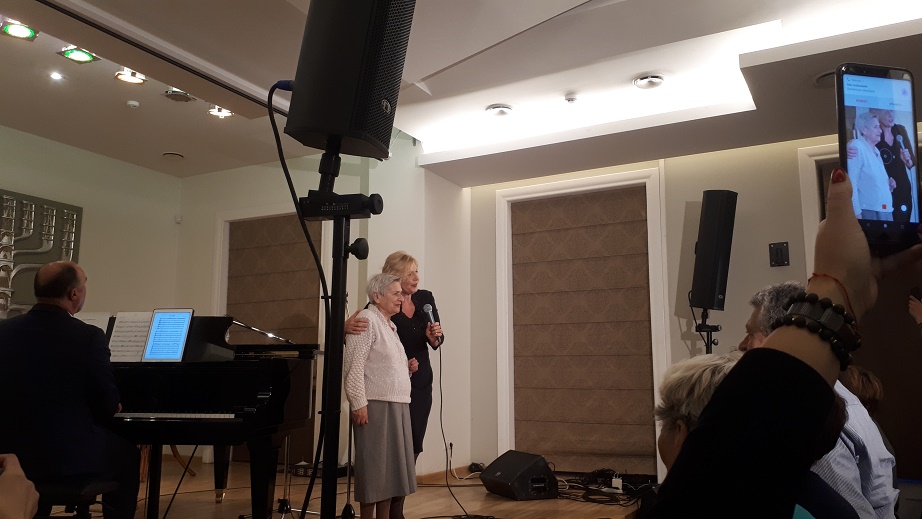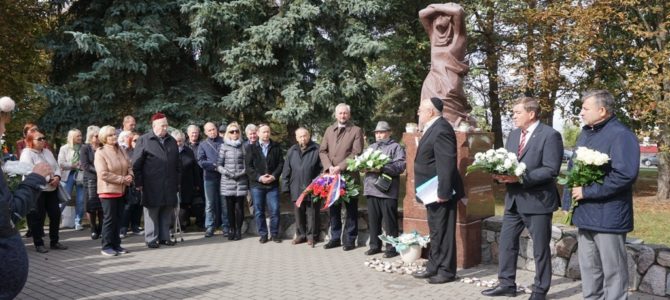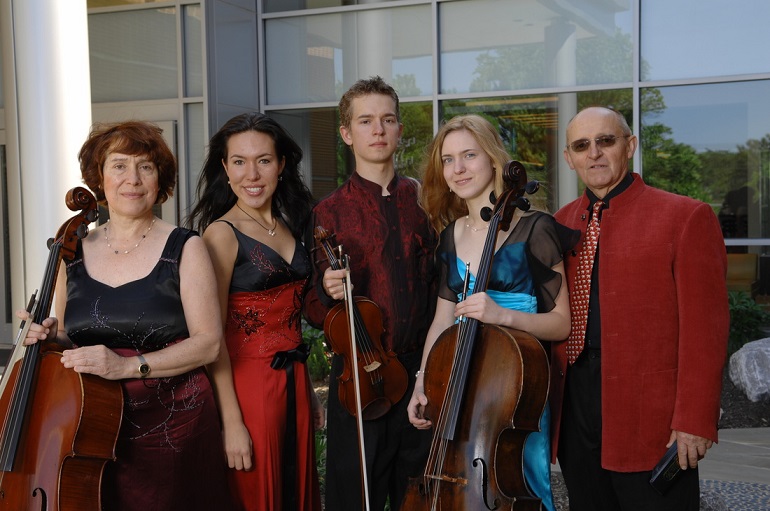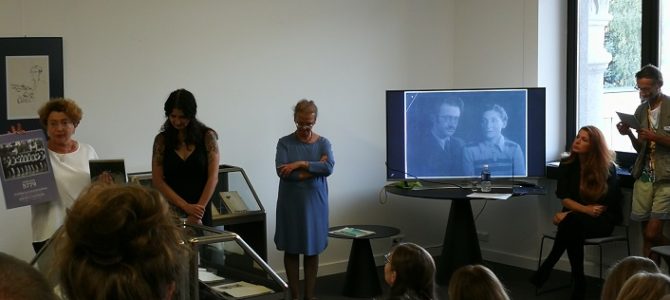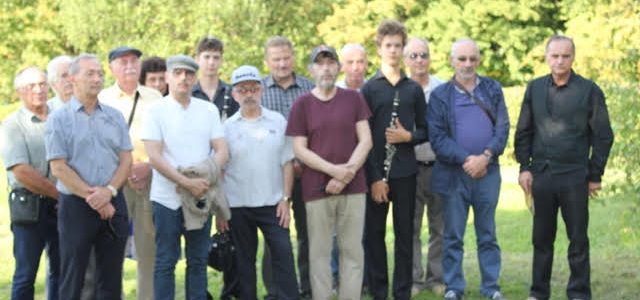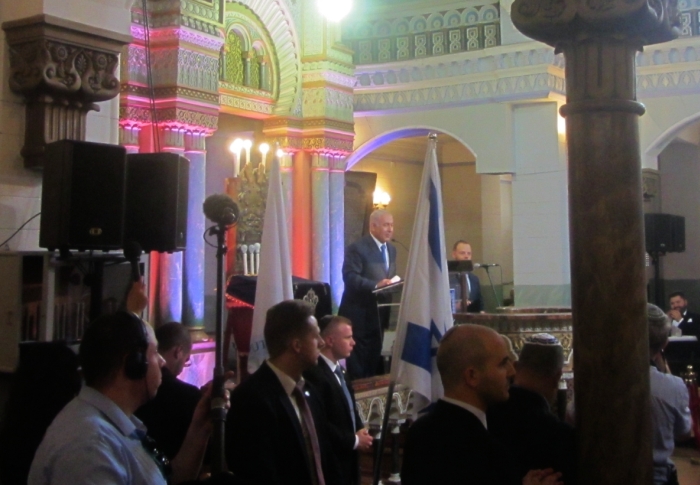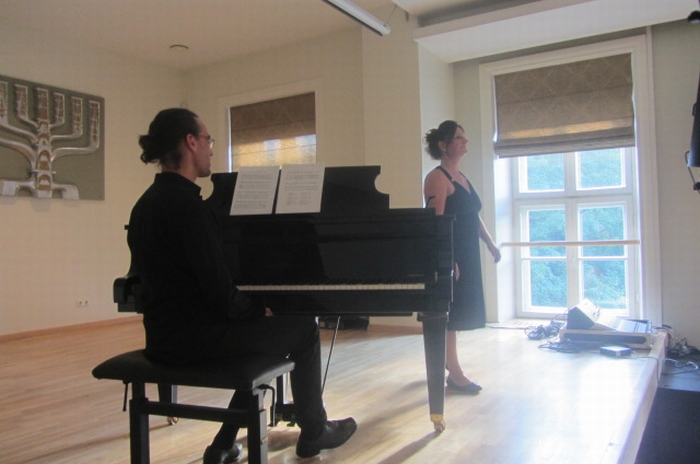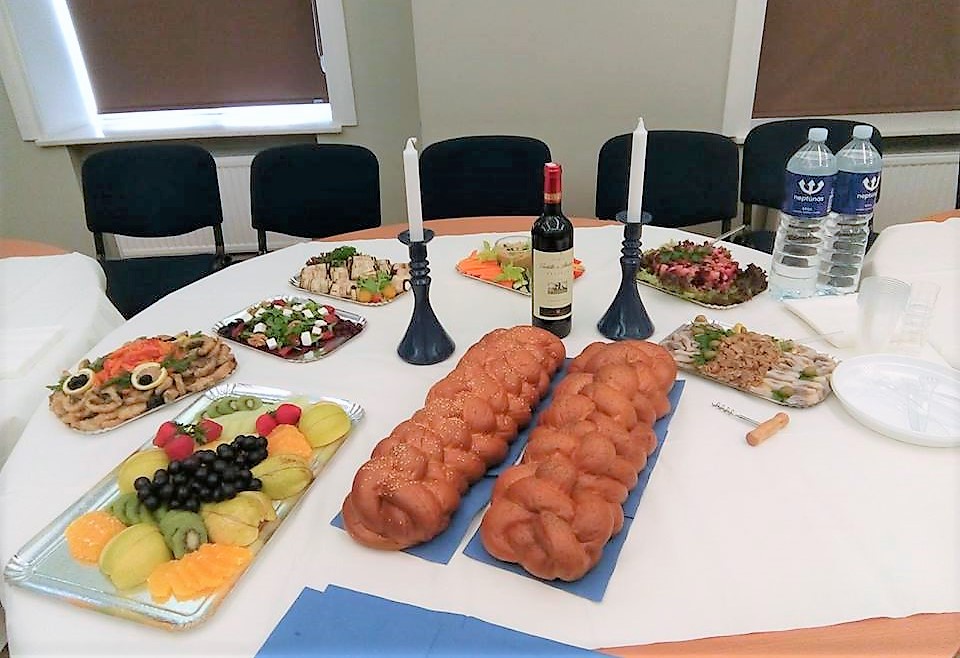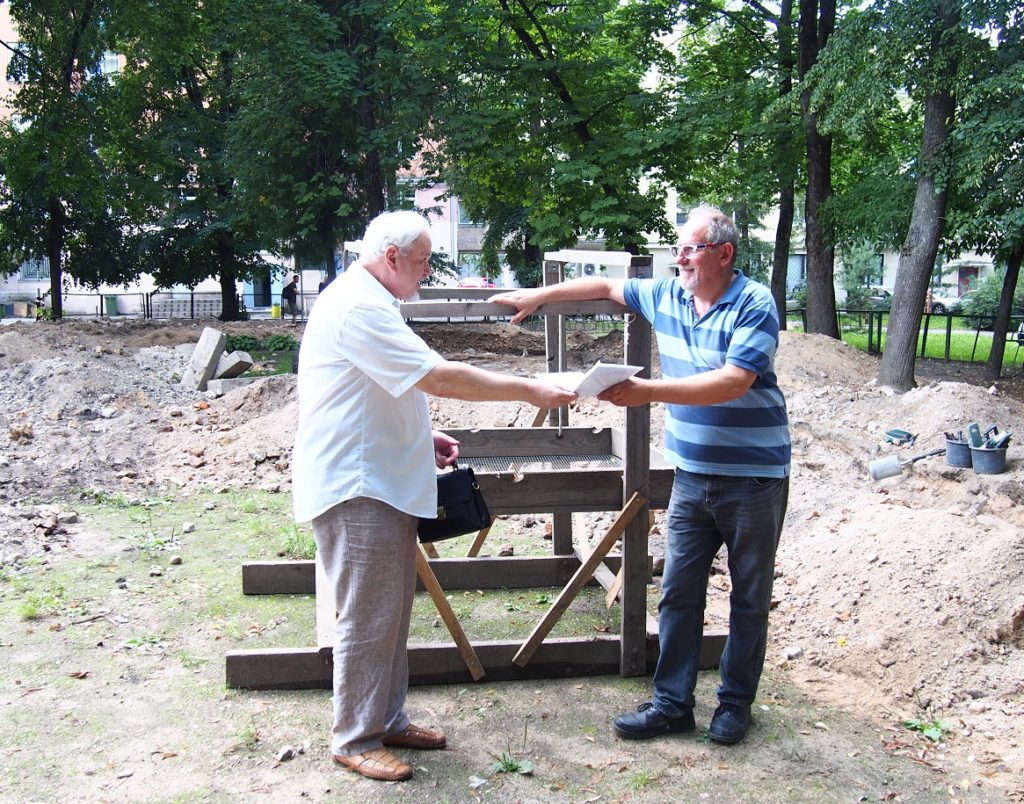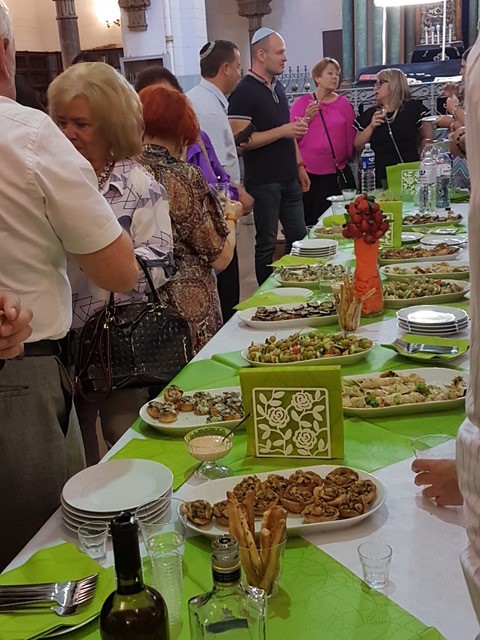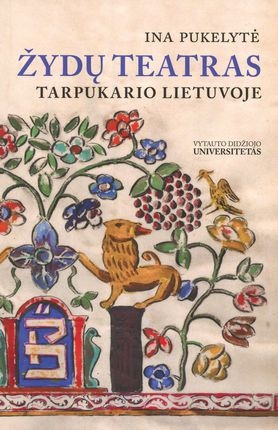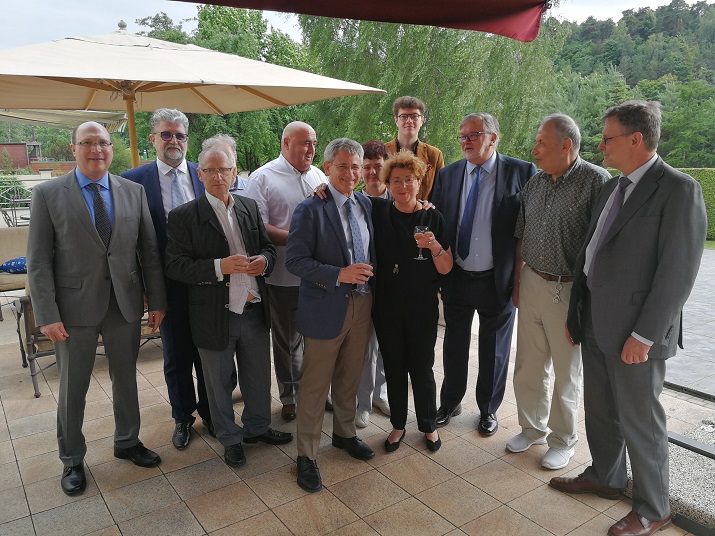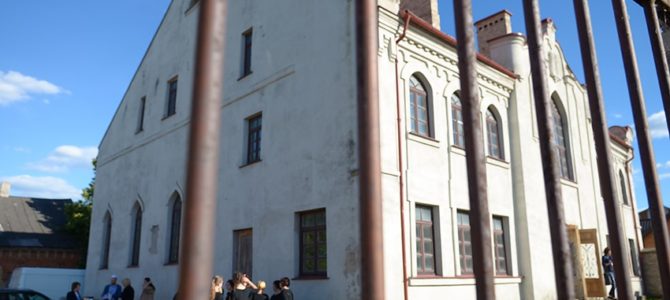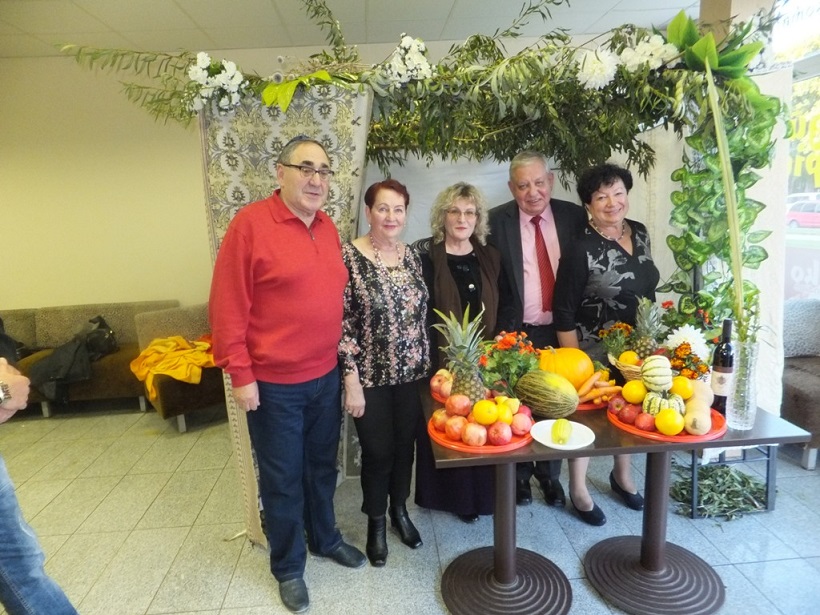
This year the Panevėžys Jewish Community and the Šiauliai Regional Jewish Community celebrated Sukkot together. According to tradition, during Sukkot, the Feast of Tabernacles (or more simply “tents”), everyone sets up a sukka, a booth or tent, together in which the ancient holiday associated with the annual harvest is celebrated. It recalls the sojourn of the Jews in Sinai when the people lived in tents. The usual practice is to make a sukka according to one’s means. This year in Panevėžys a buffet table stood next to the sukka featuring fruit and vegetables grown by community members. The main feature of the Sukkot table is the four species, the lulav, hadas, aravah and etrog, bound in palm fronds.
Panevėžys Jewish Community chairman Gennady Kofman said Sukkot is a continuation of the Jewish high holidays Rosh Hashanah and Yom Kippur.
Many of the older participants spoke about how their families used to celebrate Sukkot when they were children. They used to make the sukka out of green wicker and put the table next to the sukka, where the whole family sat. The children received gifts rare at the time: bananas, oranges and tangerines. They also recalled the times of difficulty for the Jewish people when they wandered in the deserts of Sinai.


